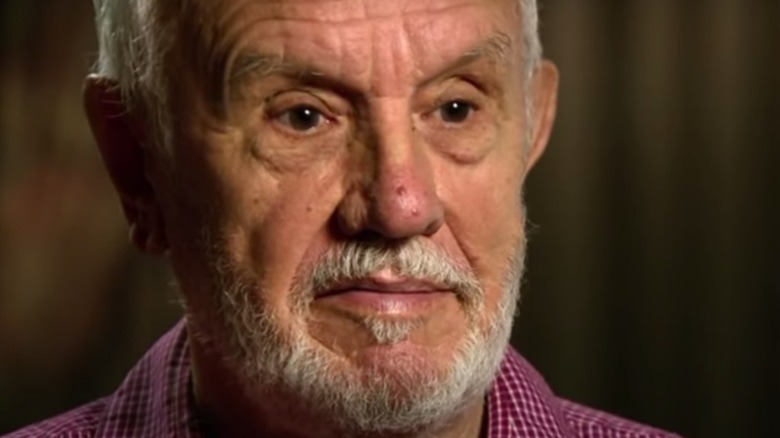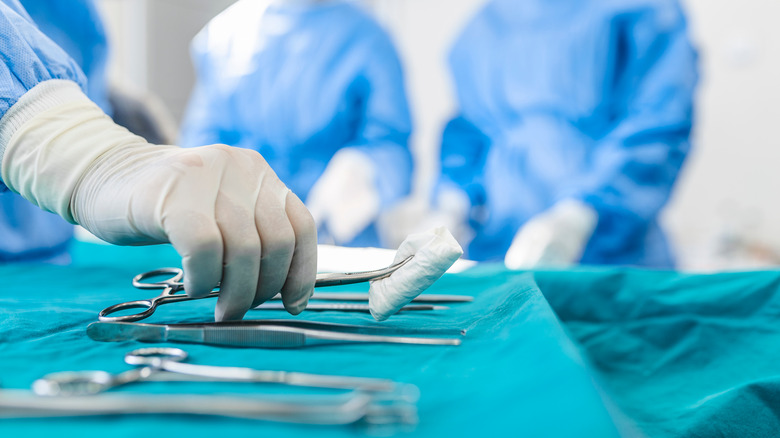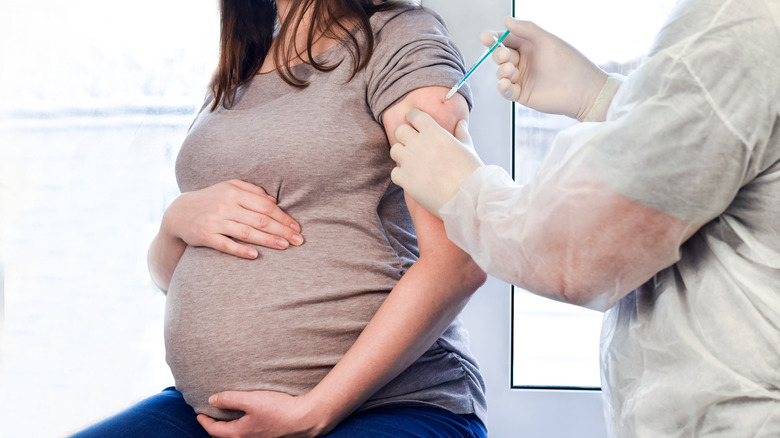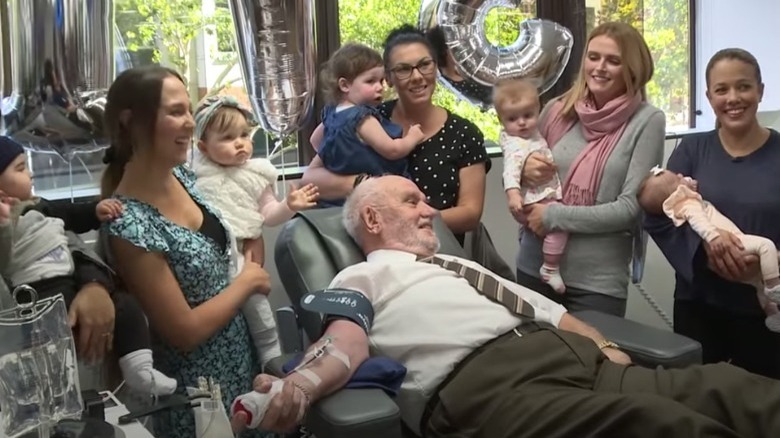An Australian's Generosity Might Change Your Mind About Giving Blood
Someone in the U.S. needs a blood transfusion every two seconds, according to the American Red Cross. There are several reasons people need blood or platelets. For example, people with cancer need blood transfusions to return platelets after radiation or chemotherapy treatments; people getting organ transplants often need a steady blood supply while the operation is underway; patients who have traumatic injuries need blood transfusions to restore the amount of blood in the body; and people with certain conditions like sickle cell disease or thalassaemia that affect red blood cells need fresh blood periodically to stay healthy, according to the National Health System. But although "the need for blood is constant," just 3% of people donate blood each year, at least in the U.S., according to the American Red Cross.
In Australia, one man has gotten more familiar than most with the juice boxes and crackers served up at blood donation centers, ultimately donating blood more than 1,000 times in his lifetime.
The 'Man With the Golden Arm'
Across six decades, James Harrison donated blood and plasma as often as the health system would let him, according to NPR. Between the ages of 18 and 81, Harrison gave between 500 and 800 milliliters of blood plasma almost every week — ultimately undergoing 1,162 donations from his right arm and 10 from his left for a total of 1,172 transfusions, according to The Sydney Morning Herald. According to the American Red Cross, Harrison is a Guinness World Records holder for his service.
Known as the "Man With the Golden Arm," Harrison actually still fears needles after all this time. He told The Sydney Morning Herald that he never watches the needle go in when the nurses inject him, and that, "[i]t could be all in the brain, but I can feel it in the left arm when they inject, so I've only had 10 in my left."
On the receiving end
Harrison's generosity when it comes to donating blood stems from his own experience as a teenager receiving blood. After having a lung removed when he was 14 years old, Harrison received nearly two gallons of donated blood. Then as soon as he turned 18 and became eligible, he started giving back right away (via NPR). "I was always looking forward to donating, right from the operation, because I don't know how many people it took to save my life," he told NPR. "I never met them, didn't know them."
Across 60 years of donations, the Australian Red Cross Blood Service estimates that Harrison's blood platelets helped save the lives of more than 2.4 million babies. "It becomes quite humbling when they say, 'oh you've done this or you've done that or you're a hero,'" Harrison told CNN. "It's something I can do. It's one of my talents, probably my only talent, is that I can be a blood donor."
Meeting the need
After analyzing Harrison's blood, researchers discovered there was something special about his blood type that could treat a disease called hemolytic disease of the newborn, or HDN, that affects mothers and their babies. What happens is that a mother's body "registers the baby's red blood cells as a foreign threat" and "produces antibodies to destroy the invader," per The Sydney Morning Herald. Luckily, Harrison's blood contains a "rare combination of RhD-negative blood and Rh+ antibodies" that can be used to treat HDN and save countless lives, according to The Sydney Morning Herald.
The concentration of antibodies in Harrison's blood that fight this disease are unusually high, giving him the potential to help so many babies with his transfusions. Although it hasn't been confirmed, scientists think this is because of the transfusions Harrison received when he was a teenager, per The Sydney Morning Herald. To Harrison, it's his way of paying it forward.
The search for a cure
Per The Sydney Morning Herald, HDN affects one in six newborns in Australia, and 17% of pregnant women receive these Anti-D injections that use blood donations with the type of blood Harrison has. Harrison's own daughter received one of these transfusions to fight the disease, according to The Sydney Morning Herald. "That resulted in my second grandson being born healthy," Harrison told CNN. "And that makes you feel good yourself that you saved a life there, and you saved many more and that's great."
Although scientists are exploring ways to synthetically produce these disease-fighting agents, their attempts have been largely unsuccessful. The program that distributes these donations in Australia only has 160 donors to provide blood, and "recruiting new donors is a laborious task." These challenges make Harrison's contributions that much more important, especially because researchers also use his blood to further study the disease and potential treatments (via The Sydney Morning Herald).
The final donation
In 2018, Harrison gave his final blood donation after turning 81 years old and surpassing the age limit for donating in Australia, according to the Australian Red Cross. In a small ceremony to celebrate his "retirement" from giving blood, Harrison was joined by mothers and their babies who were saved because of his donations (above), according to The Sydney Morning Herald. After receiving praise for his service, Harrison remained humble throughout his last donation.
"Some people say, 'Oh, you're a hero,'" he told NPR. "But I'm in a safe room, donating blood. They give me a cup of coffee and something to nibble on. And then I just go on my way ... No problem, no hardship."
For his service, Harrison was awarded the Medal of the Order of Australia — a signal of outstanding achievement and service (via The Sydney Morning Herald). "I hope it's a record that somebody breaks," he said after his last donation (via the Australian Red Cross).





